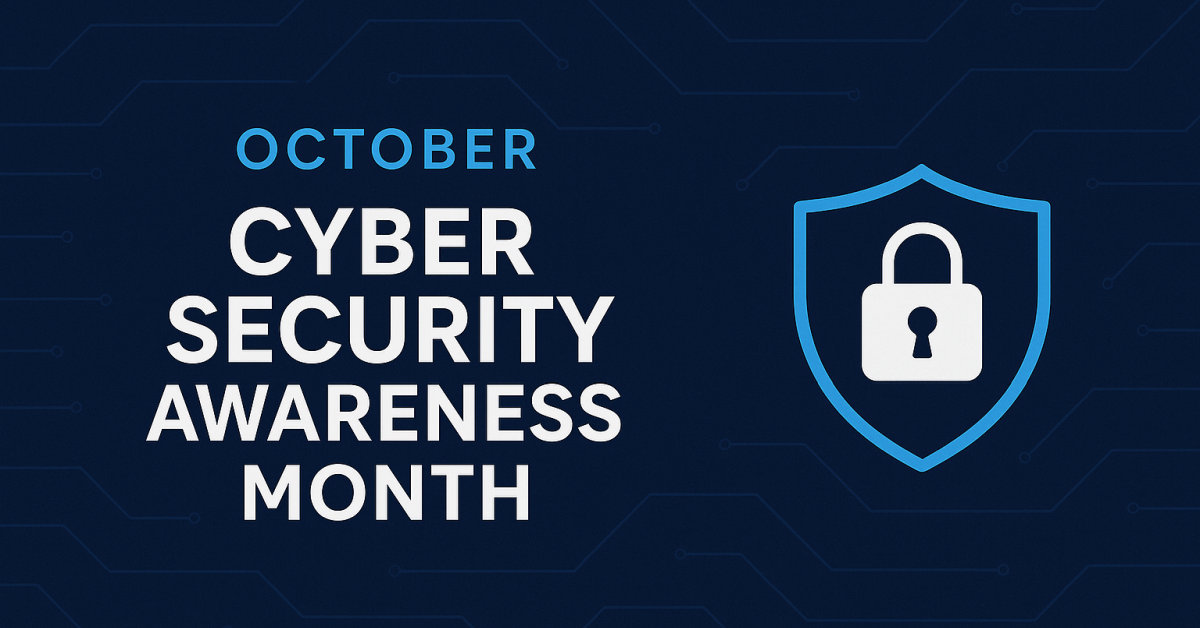Introduction
Every October, governments, regulators, and industry bodies coordinate public campaigns to boost digital safety. The idea started in the United States in 2004 as National Cyber Security Awareness Month, created by the Cybersecurity and Infrastructure Security Agency (CISA) and the National Cyber Security Alliance. Two decades later, it’s simply called Cyber Security Awareness Month and is observed worldwide.
Europe runs a parallel initiative; European Cyber Security Month (ECSM), led by European Network and Information Security Agency (ENISA) and the European Commission. ECSM began in 2012 and continues each October, uniting public and private sectors around practical education for citizens and organisations. Despite the different branding, the principle is the same; help people adopt good habits and make security part of everyday life.
In the UK, the National Cyber Security Centre (NCSC) is the main authority, producing clear, practical advice for both individuals and businesses.
Why Cyber Security Awareness Month matters
- Phishing remains the easiest way in; email and text scams still dominate as initial access routes, and one well-crafted message can bypass even expensive technical controls.
- Fraud is the UK’s most common crime; UK Finance’s Take Five campaign continues to remind us to Stop, Challenge, Protect. Criminals regularly exploit texts, emails, and social media to trick victims into transferring money.
- Threats evolve quickly; from AI-assisted phishing to credential theft, attackers adapt faster than most organisations. That makes basic hygiene; MFA, updates, backups, and phishing awareness; more critical than ever.
- The regulatory and reputational risks are serious; the ICO’s latest advice for small businesses stresses simple but essential defences such as backups, MFA, and access controls.
How to take part this October
For Organisations
- Start with NCSC guidance (The Small Business Guide) – This outlines five essential actions: regular backups, malware protection, device security, strong passwords with MFA, and phishing defences.
- Enable Multi-Factor Authentication (MFA) – Use app-based prompts or security keys wherever possible; the NCSC’s MFA guidance explains the options.
- Promote Scam Reporting – Encourage staff and customers to forward suspicious emails to report@phishing.gov.uk and scam texts to 7726 (see Ofcom’s reporting page; these reports help providers and the NCSC shut down malicious campaigns quickly.
- Run an incident-response exercise – NCSC’s Exercise in a Box offers free, non-technical scenarios (such as ransomware or supply-chain compromise) to test your organisation’s response.
- Work towards Cyber Essentials – This government-backed certification proves your organisation has core controls in place and is increasingly a requirement in supply chains.
- Know who to call in an emergency – For a live cyber attack, contact Action Fraud on 0300 123 2040 (24/7 for organisations). In an immediate danger to life or property, call 999.
For Individuals and Families
- Turn on MFA everywhere – Secure your email, banking, and social accounts with two-step verification. Follow the NCSC’s Cyber Aware MFA advice.
- Use a password manager – Create and store long, unique passwords for every account. See the NCSC’s password manager guidance.
- Keep devices up to date – Enable automatic updates on computers, phones, tablets, and routers. The NCSC explains why installing updates is vital.
Frequently Asked Questions
Is Cyber Security Awareness Month a UK or US initiative?
Both. The US runs it via CISA/NCA, Europe runs ECSM via ENISA, and the UK aligns with NCSC’s guidance.
What’s the 2025 focus?
This year’s theme remains practical: strong passwords (with a manager), MFA, software updates, and phishing awareness.
How do we check if an email or text is a scam?
Forward emails to report@phishing.gov.uk and texts to 7726. These are the official UK reporting channels.
Does Cyber Essentials really help?
Yes; it addresses the most common attacks faced by UK organisations and is now a standard requirement in many contracts.
Useful Links
- NCSC Small Business Guide
- NCSC Cyber Aware
- Report Phishing Emails – report@phishing.gov.uk
- Report Scam Texts – 7726
- Exercise in a Box
- Cyber Essentials
- Action Fraud – Report Cyber Crime
- Take Five to Stop Fraud
Conclusion
Cyber Security Awareness Month isn’t about grand gestures; it’s about practical steps you can take now such as turning on MFA, patching devices, backing up data, and making it easy for people to report scams. Do just those, and you’ll already be ahead of the majority of UK organisations and households.
At Stu Walsh Ltd., we help UK businesses put these principles into practice; from building an Information Security Management System (ISMS) to preparing for Cyber Essentials, running incident-response workshops, or improving staff awareness programmes.
If you’d like to strengthen your organisation’s defences this October (and beyond), get in touch with us. A short conversation now could save you from a much bigger problem later.






